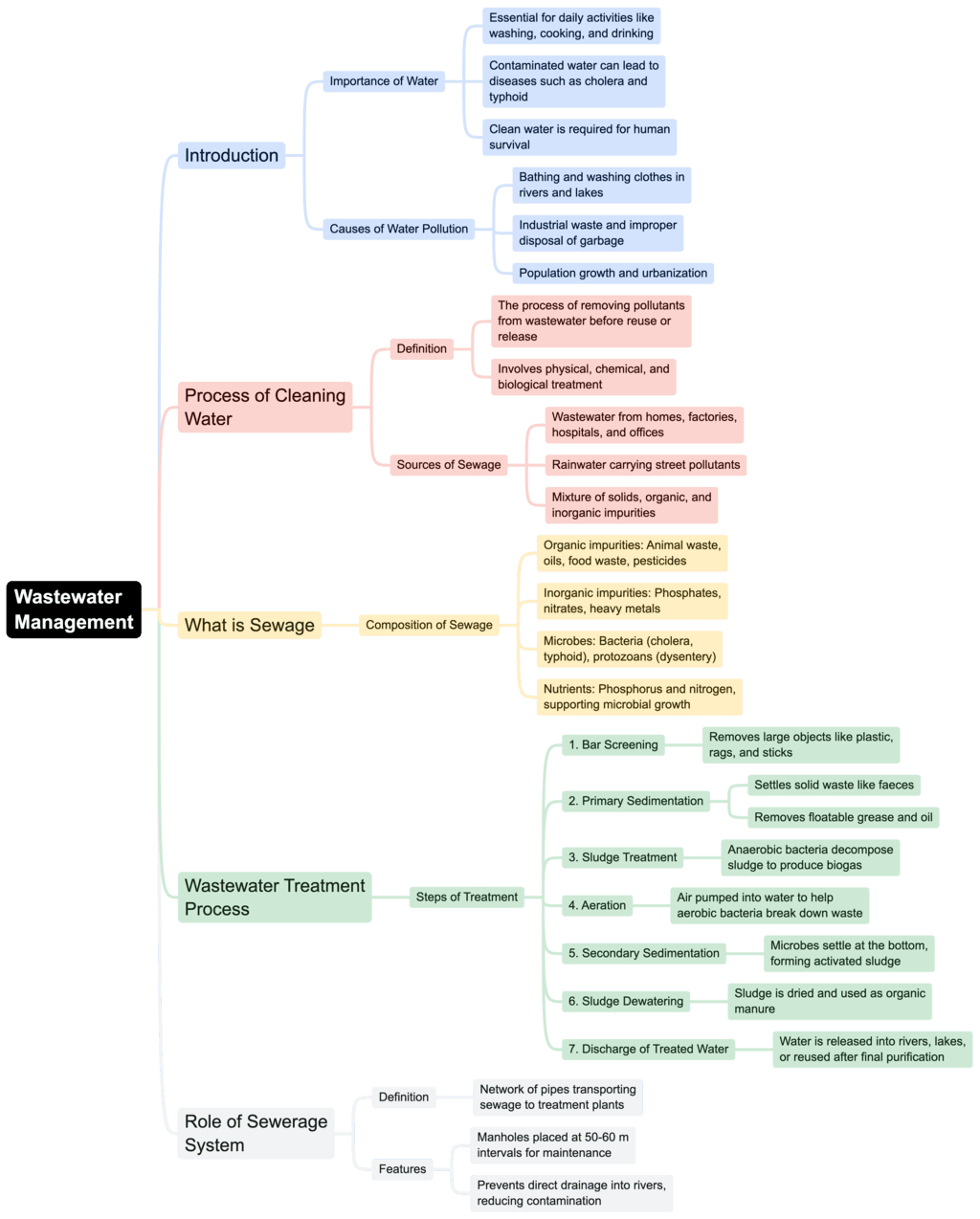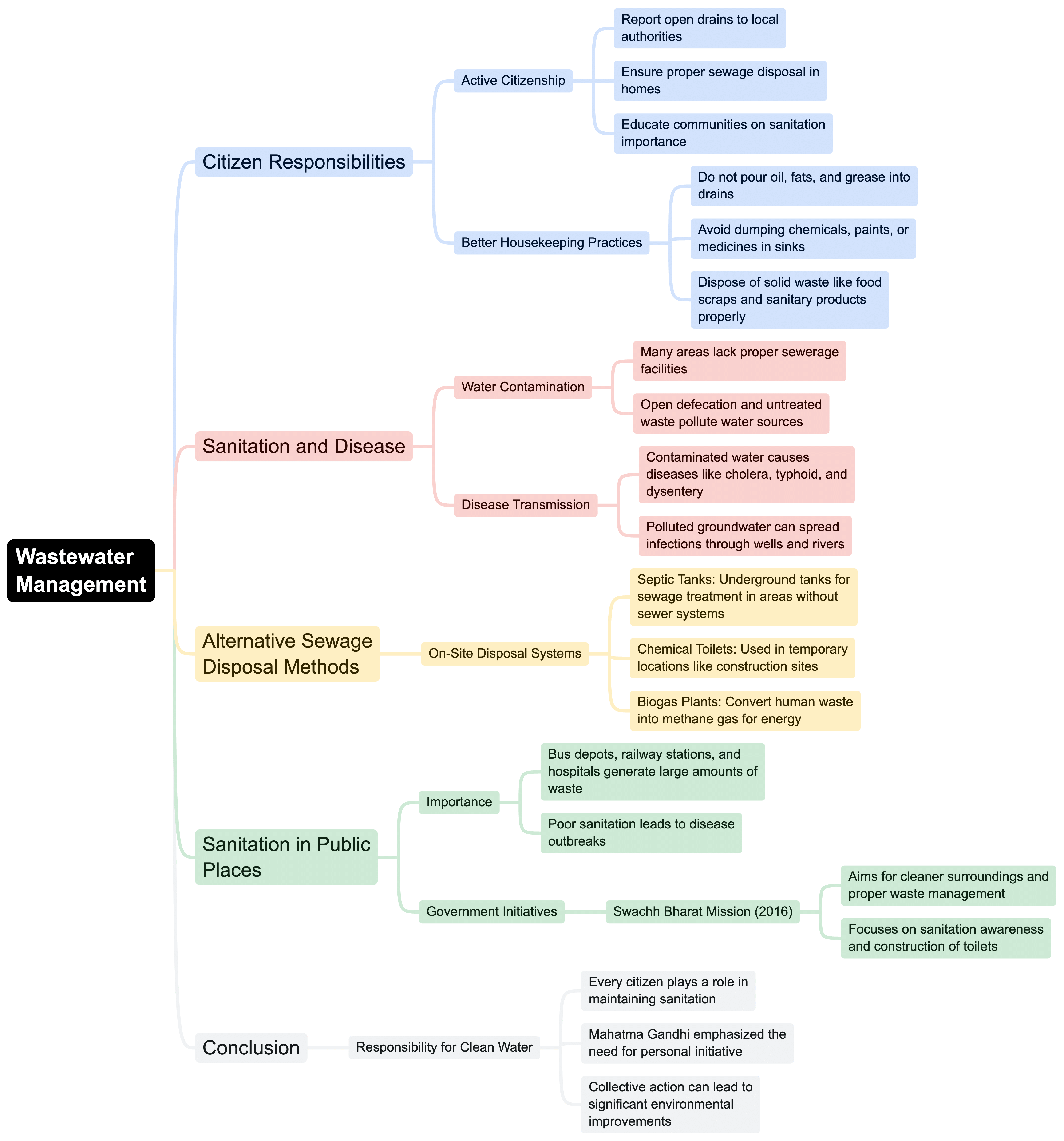Class 7 Exam > Class 7 Notes > Science Class 7 (Old NCERT) > Mind Map: Wastewater Story
Mind Map: Wastewater Story | Science Class 7 (Old NCERT) PDF Download


The document Mind Map: Wastewater Story | Science Class 7 (Old NCERT) is a part of the Class 7 Course Science Class 7 (Old NCERT).
All you need of Class 7 at this link: Class 7
|
112 videos|286 docs|28 tests
|
FAQs on Mind Map: Wastewater Story - Science Class 7 (Old NCERT)
| 1. What is wastewater, and why is it important to manage it properly? |  |
Ans.Wastewater refers to any water that has been contaminated by human activities, typically including water from households, industries, and stormwater. Proper management of wastewater is essential to protect public health, safeguard the environment, and conserve water resources. Untreated wastewater can lead to pollution of water bodies, posing risks to ecosystems and human health.
| 2. What are the main sources of wastewater? |  |
Ans.The primary sources of wastewater include domestic activities such as bathing, cooking, and flushing toilets, industrial processes that produce effluents, and agricultural runoff containing fertilizers and pesticides. Each of these sources contributes to the overall volume of wastewater that requires treatment before it can be safely released into the environment.
| 3. What are the stages involved in the treatment of wastewater? |  |
Ans.Wastewater treatment typically involves several stages:
1. Preliminary treatment, which removes large solids and debris.
2. Primary treatment, where sedimentation helps separate solids from liquids.
3. Secondary treatment, involving biological processes that break down organic matter.
4. Tertiary treatment, which includes advanced filtration and disinfection methods to remove remaining contaminants before the treated water is released or reused.
| 4. How does untreated wastewater affect the environment? |  |
Ans.Untreated wastewater can lead to severe environmental issues, including the contamination of rivers, lakes, and oceans. It can cause eutrophication, leading to excessive growth of algae that depletes oxygen levels in water, harming aquatic life. Additionally, pathogens present in untreated wastewater can pose health risks to humans and wildlife.
| 5. What are some effective methods for recycling and reusing wastewater? |  |
Ans.Effective methods for recycling and reusing wastewater include treatment processes like reverse osmosis, which removes contaminants, and constructed wetlands, which naturally filter water. Recycled wastewater can be used for irrigation, industrial processes, or even as potable water after sufficient treatment, helping to conserve freshwater resources and reduce environmental impact.
Related Searches
















